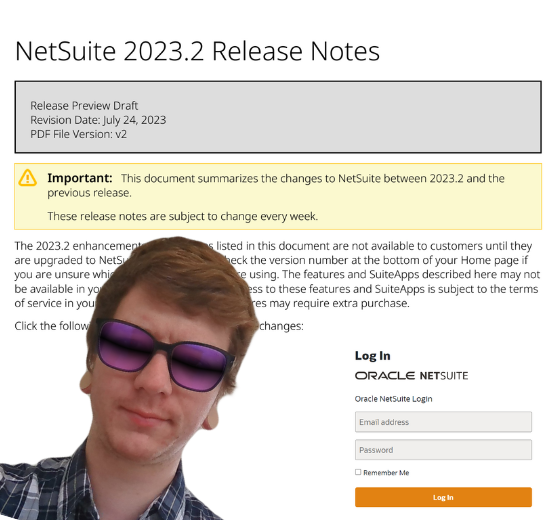Last week we featured some of the key benefits of using the cloud-based business management solution Microsoft Dynamics 365, specifically covering the Finance and Supply Chain Management modules. These modules help businesses achieve the financial visibility needed to optimise budgeting and forecasting to maximise profits, and navigate the minefield of supply chain management.
In this second article we’ll cover three more modules from within the Microsoft Dynamics 365 suite: Sales, Service and Marketing.

The 360 degree view offered within Microsoft Dynamics 365 is aptly illustrated in these modules – which all put the customer at the heart of the solution. In the current business world, creating connected customer experiences, nurturing leads and building relationships is key. Similarly, providing innovations customers have come to expect, such as self-service support, is something businesses across all sectors should consider and can turn to smart technology solutions can facilitate. This will enable them to better connect with and serve the customer.
Service
Giving customers choice on how they interact with your business
Customers are fast becoming used to, and expectant of, omnichannel interaction. From telephone, web chat and SMS through to social channels such as Facebook and Twitter, and messaging platforms including WhatsApp and Messenger – customers want to communicate on their preferred channels.
Managing omnichannel communications manually can present a huge undertaking for any organisation, and with comms taking place in this way, it’s hard to get any kind of consistency in approach, let alone monitor it or deliver a seamless service. With Microsoft D365’s Service module, communication across multiple channels is executed from one unified agent desktop – giving an end-to-end solution.
The 360 degree view of the customer within this module means your customer service agents can see the customer profile and their former interactions with the organisation: conversation summaries and support history is available at-a-glance. The agent can anticipate customer needs form this summary, which not only enhances productivity and efficiency – but by enabling the agent to quickly resolve an issue or query also means the customer has a more seamless and satisfactory experience.

Enabling teams to resolve issues faster with Artificial Intelligence (AI) tools
Faster resolution of issues will enhance customer experience and increase satisfaction, so the AI powered suggestions within Microsoft D365 Service helps agents with resources in real-time context, drawn from similar articles or cases. While the integration of Microsoft Teams within the agent desktop enables agents to engage experts faster – and getting answers faster means happier customers.
The intuitive way the module works means that data can be analysed to provide insights that will enable an organisation to continually evolve the customer service offering in line with actual data on what they want. Key performance indicators can be set for success tracking, and knowledge gaps can be addressed by analysing what topics agents are commonly searching for to aid them in customer issue resolution.
Sales
Maximising sales in a remote digital sales era
Business buyers now prefer digital experiences over traditional sales methods. Digital has taken over as the primary engagement model, and so being able to effectively engage customers remotely is no longer an option but a necessity.
Keeping customers informed, using tools such as newsletters that can be delivered across multiple channels, and providing them with buying options that suit their preferences and needs, is crucial in the quest for sales. The Microsoft D365 Sales module can help you guide and collaborate with customer to improve their buying experience. It can integrate with LinkedIn Sales Navigator to provide insights into what customers are looking for, and help you get in contact with them at just the right time, such as when they move job roles or companies. The proactive guidance around personalised talking points and topics allows sellers to ascertain the next best action to take to progress the relationship or clinch the deal.
The integrated real-time insights function within Microsoft D365 Sales allows sellers to shorten the sales cycle by personalising interaction, and the AI powered analysis of call transcriptions – which analyses elements such as buyer sentiment and priorities – are invaluable in this personalisation. Built-in coaching tools aids managers in helping sellers to improve their approach and tactics, so the sales team becomes more focused on what the customer wants. The enterprise collaboration hub brings together colleagues, customers and contextual customer data. This is a key consideration for businesses operating remote sales teams in the new normal.

Automation helps boost seller productivity
Microsoft D365 Sales will provide suggestions for automation, such as the creation of new records for contacts, meetings and tasks, which will not only minimise these time-consuming routine tasks, but facilitate accelerated sales. Features such as dictating notes and scanning business cards using a smartphone, which can be automatically converted into new records, is a handy tool. The presence of contextual sales data in apps such as Outlook minimises app-switching. It is features such as this that contribute greatly to productivity by minimising manual, and often menial, tasks.
And in a rapidly changing business landscape, adapting to these changes to capitalise on opportunities is vital. The real-time visibility into sales performance offered by Microsoft D365 Sales is not only valuable for monitoring, but enables data-driven decisions on how to proceed, and can inform next best action recommendations for the sales team. This can be designed and implemented using a no-code tool, for fast and flexible process creation and delivery.
Marketing
Real-time information facilitates better customer engagement
Just as digital now dominates the sales landscape, it does too in the marketing arena. Creating personalised customer journeys across multiple channels and cutting through the plethora of content being continually disseminated by the competition is no mean feat. If you’re executing this kind of activity across disparate solutions, the task is even more challenging.
When customer information can be seen on one platform, in real-time, combining multichannel interactions and touchpoints, nurturing prospects and customers becomes a more achievable prospect. The deeper understanding gained from seeing customer information in this way facilitates a better approach for creating a personalised journey. Creating impactful content with which to engage the customer is easily executed in the Marketing module with point-and-click dynamic authoring, digital asset management and reusable content blocks. The library of templates provides a valuable resource from which to create engaging content, and the A/B testing and analytics enables the amplification of resonating content.

End-to-end journeys enables customer wins and loyalty
Delivering a seamless customer journey is the Holy Grail for businesses, and is a sure-fire way to winning customers and earning loyalty. In Microsoft D365 Marketing, designing this end-to-end journey is easier and more effective using customer-triggered events and data from feedback surveys, which can be executed easily and effectively in D365 Customer Voice.
Customers appreciate timely and relevant communications, and the capability to send periodic newsletters, transactional emails and personalised notifications is within Microsoft D365 Marketing. Account-based marketing campaigns can be run to align with sales, and customer engagement can be further enhanced with the ability to engage with registrants of webinars or events – giving the opportunity to nurture and convert them into loyal customers.
Trust is a key element of the customer relationship, and with Microsoft D365 Marketing, customers can be assured that their data is secure and stored compliantly. It is factors such as this that help attract and retain customers and promote trust and loyalty.
As customers increasingly expect a sophisticated, seamless and personalised approach to sales, marketing and customer service, executing key activities in these business areas in siloes is neither an intuitive nor effective approach. Connecting these areas in a centralised solution will transform a business, creating real efficiencies, engaged and happy customers and enhanced sales – all leading to tangible bottom-line impact. Investment in a solution such as Microsoft D365 is something all businesses should strongly consider.
If you want to find out more about how the Microsoft D365 suite of modules can help transform your business, contact us and a member of our friendly team of experts will be happy to explain the benefits implementation process.
Keep reading

What is a NetSuite implementation partner? How do you choose one?

Technology fit for total customer service in 2024

Retail and wholesale distribution: how to improve supply chains

Ditching Sage 1000: what you need to know from businesses that have done it

6 ways AI-ready Microsoft Dynamics 365 helps chartered associations serve members

6 retail and wholesale distribution challenges and how NetSuite solves them

The most exciting features in Microsoft Dynamics 365 2023 Release Wave 2

How to manage a new NetSuite Release: one expert's update process

What’s in NetSuite Release 2023.2?

